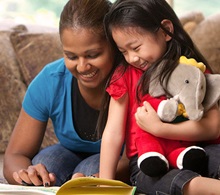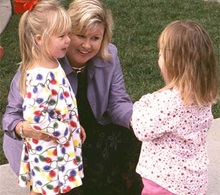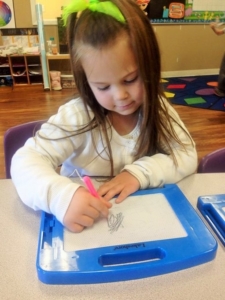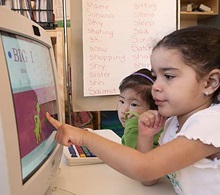Back-to-school is around the corner, but don’t be daunted by the transition from summer fun to school schedule. Children take their cues from their parents, so it’s key for US to get into the back-to-school mind-set first. Here are my pain-free prep tips for parents – our stressless adjustment will filter down to the kids, making it smoother for everyone.
Adjust your schedule. Ease back into the more strict school schedule by making the week before school starts a test-run week. Plan for the whole family to adopt more regular mealtimes, bedtimes and tidying-up routines.
Document your summer. Organize photos and mementos of summer adventures. Have everyone help, and display your project. Seeing summer fun all in one place is a concrete way of knowing that it’s time for the next phase.
Organize your home. Organizing the house helps to organize your mind! Get your surroundings into school mode to help you prepare. Reclaim school space by putting away sidewalk chalk and pool floaties, making room for lunch boxes, jackets and school papers. Have the kids help you set aside things they’ve outgrown, label bins and organize. Activities like this cue the whole family that it’s time to move into a new season.
Go shopping. Doctor’s orders! I love being able to use shopping as an excuse to boost psychological adjustment. Back-to-school shopping is a way to psychologically prepare. There’s nothing like buying school supplies or seeing your child fit into the next, larger clothing size to tell you that it’s transition time. Have the kids help you donate their outgrown clothes to those who need them, too.
Get haircuts. Shaggy summer hair is adorable, but fresh, official new haircuts (for Mom and Dad, too) signal it’s time for a fresh, official new schedule.
Is your child ready to go Back to School? Contact Premier Academy Today!

 This new journey of preparing your child for Pre-K is a very important time in your child’s life. If you have placed your child in pre-school, this may be a very easy transition. At Premier Academy in Omaha and Elkhorn, our goal is to not only help your children but to help our parents!
This new journey of preparing your child for Pre-K is a very important time in your child’s life. If you have placed your child in pre-school, this may be a very easy transition. At Premier Academy in Omaha and Elkhorn, our goal is to not only help your children but to help our parents! When it comes to child care, as a parent, there are a few things you should be looking out for when visiting daycare centers. We all want to send our child to a high standard, and good working preschool. As parents, we should always want to give our kids the best head start in life, and by far the most effective way to start with this is to send your kids to a high quality child care center. Kids need to socialize with other children from a very young age, it allows them to become familiar to social interaction, sharing and good manners, this is what your child will gain from attending a preschool. Not only will they learn how to act and behave around others, they will learn valuable reading and writing skills. Statistics show that kids who don’t attend preschools and head straight into schools have a much harder time learning than the children who did attend preschools. These statistics come in very handy when trying to give your kids the best head start in life, and it’s obvious which choice you should make.
When it comes to child care, as a parent, there are a few things you should be looking out for when visiting daycare centers. We all want to send our child to a high standard, and good working preschool. As parents, we should always want to give our kids the best head start in life, and by far the most effective way to start with this is to send your kids to a high quality child care center. Kids need to socialize with other children from a very young age, it allows them to become familiar to social interaction, sharing and good manners, this is what your child will gain from attending a preschool. Not only will they learn how to act and behave around others, they will learn valuable reading and writing skills. Statistics show that kids who don’t attend preschools and head straight into schools have a much harder time learning than the children who did attend preschools. These statistics come in very handy when trying to give your kids the best head start in life, and it’s obvious which choice you should make. The first day can be hard on both parents and children. For many, it’s the first time that they will have been away from each other for such an extended period of time. Even though many kids will be excited for their first day of
The first day can be hard on both parents and children. For many, it’s the first time that they will have been away from each other for such an extended period of time. Even though many kids will be excited for their first day of  Most preschools will start accepting children at around age of 2, but that doesn’t mean your child is ready for preschool when they reach this age. Readiness for preschool has more to do with where your child is developmentally.
Most preschools will start accepting children at around age of 2, but that doesn’t mean your child is ready for preschool when they reach this age. Readiness for preschool has more to do with where your child is developmentally.